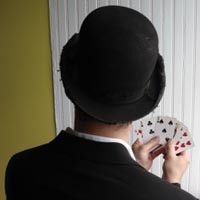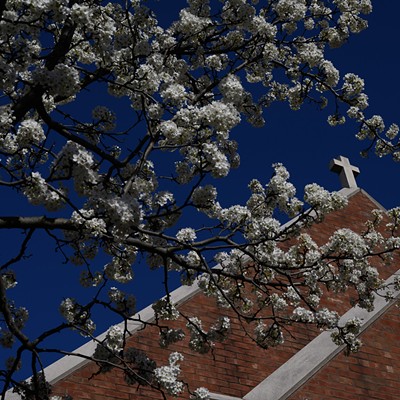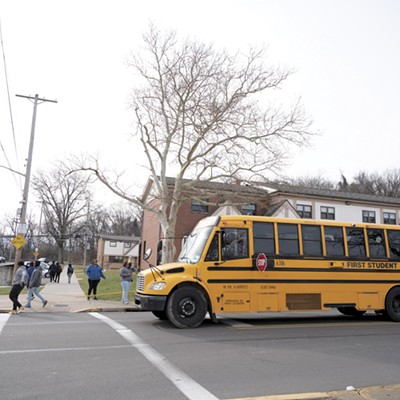If you stand near the Point State Park fountain, you are standing where, almost 150 years ago, Andrew Tierney was murdered.
Now, as part of an art project called Public Record, Tierney can call and tell you about it.
A middle-aged steelworker, Tierney was playing cards in a saloon when an argument sparked over alleged foul play. By night's end, the Irishman was left to walk home carrying three feet of his own intestines.
"I like to think of it as a haunting," says Justin Hopper, the artist and writer behind Public Record. "I call it a tour, but it's not. There's nothing really consecutive about it."
Created during Hopper's Old and New Media Residency with local outfits Deeplocal and Encyclopedia Destructica, Public Record combines hand-bound printed pages with modern technology.
Public Record, which debuts at Downtown's July 16 Gallery Crawl, includes a set of poems written to invoke 19th-century crimes committed Downtown, then recorded and integrated into an iPhone app and text-messaging system.
The app, developed through creative-technology specialists Deeplocal, displays a map of Downtown with a red X where each crime occurred. As participants reach each location, the X turns green, and they can hear Hopper's poems, performed by local actors, with effects by DJ Soy Sos. A brochure-style map with text-messaging codes (available at the gallery at 937 Liberty Ave.) can be used with other cell phones.
"It's like that Twilight Zone episode where the guy dials his own house and he picks up. You hear that voice," says Hopper (who's an occasional CP contributor). "The sound is compressed so much going through the phone line that, with the soundscapes in the background, it's a little spooky."
Hopper aims to raise the spirits of people who, officially, barely existed: All 11 subjects of Hopper's poems were uncounted in the census and left out of the city directory. "There is no way to know anything about them other than this one thing -- the time they got robbed or robbed someone or murdered," Hopper says.
Exploring themes of racism, women's roles and immigration, the poems were written using text from 19th-century newspaper articles and advertisements.
"It's an amazing time in the city's history," Hopper says of the last three decades of the 19th century, when most of the crimes occurred. "It really is like there's molten metal being poured into the cast of the city, but it hasn't cooled yet. It's bubbling; it's churning; it's absolutely insane."
In September, the poems will be printed in a limited-run book by Encyclopedia Destructica, an art collective. The book will include original illustrations, some of which will be displayed at the gallery.
Though he's far from tech-savvy himself, Hopper is refreshed by the creative possibilities of modern technology. "We're at the stage where technology-based art needs to break free of gadgetry -- to stop being about building a gadget that can do this neat thing and start being about being a means to an aesthetic end," he says. "Painting is not about the paint. I hope that this is a step towards that."
Public Record premieres 5:30-9 p.m. Fri., July 16. Exhibit continues through July 25. 937 Liberty Ave. (second floor), Downtown. Free. www.publicrecordpgh.com














